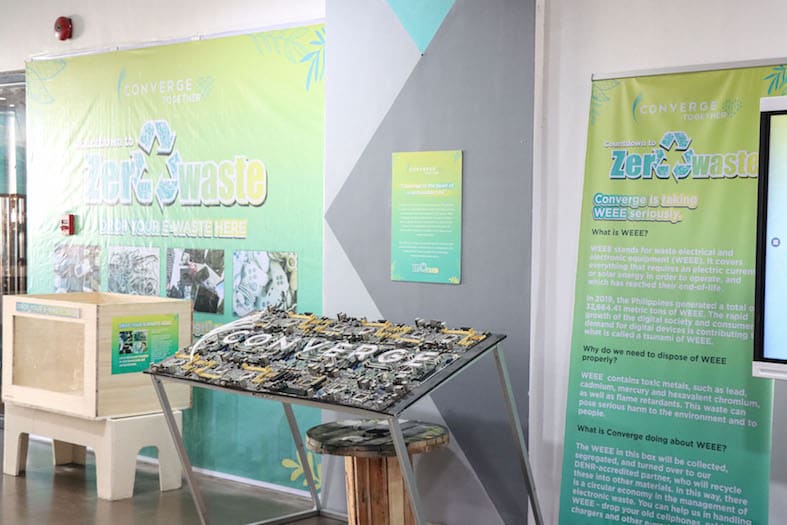“The prevailing notion at that time, a fossilized one, is that a national language even at the expense of the death of minority or more minor languages is the cause of national unity, progress, and development”
In late July 2022, Dr. Eduardo Bagtang, President of Kalinga State University, asked to meet with me, first via Zoom and then eventually personally.
The Zoom meeting was an initial rite of friendship. The face-to-face meeting in Tabuk City that followed two weeks later sealed my connection to the university, its vision and mission, and the larger community.
It was fate that made this possible.
President Bagtang was clear about what he wanted: an international conference. He wanted me to help in organizing it.
I agreed. I suggested a conference title that would serve as a brand: International Conference on Languages, Cultures, and Histories. That stuck.
I brought in the University of Hawaii Ilokano Program, NAKEM Conferences International, NAKEM Philippines, NAKEM California, NAKEM Canada, and NAKEM Without Borders.
I brought Dr. Alma Ouanesinouk Trinidad from Portland State University in Oregon and Rev. Dr. Shierwin Cabunilas from San Beda University Graduate School of Law and Saint Paul Seminary to help me untangle the conference theme, “Celebrating Diversity and Empowering Peoples and Communities.”
Dr. Ouanesinouk Trinidad untangled the problems of empowering settlers, migrants, and indigenous communities in the Pacific Northwest.
At the same time, Rev. Dr. Cabunilas explored the issue of race, multiplicity, and diversity in German and contemporary philosophy.
I approached the conference theme by problematizing the issue of “decolonization” and the “post-colonial,” two terms that academics and researchers throw around without looking into the real problems on the ground.
I argued decolonization alone is insufficient and that we must question how that project to decolonize had been implemented.
I have been worried about the act of the Philippines to decolonize since Commonwealth President Manuel Quezon signed an executive order that established the Institute of National Language that selected Quezon’s Tagalog as the national language.
Early on, I did a sleuthing of what happened to the 1934-1935 Constitutional Convention and following advocates of pluralism even as early as the 1960s like Atty. Manuel Lino Faelnar and Vicente Albano Pacis.
I found out the country’s other languages did not stand a chance of becoming the country’s national language.
The prevailing notion at that time, a fossilized one, is that a national language even at the expense of the death of minority or more minor languages is the cause of national unity, progress, and development.
Until today, no one has questioned that assumption.
My talk, “Endogenous Colonialism and the ‘Postdecolonialization’ Project: The Ethics of More Democracy in Languages, Cultures, and Histories,” argued the Philippines had normalized a colonizer taking residence in the bodies, minds, souls, and spirits of our people.
That colonizer is no longer an outsider imposing its will upon all of us but an insider occupying our consciousness, insisting that we all must think in one and in only one language to have unity.
I am beginning to think that we have been hoodwinked by our three colonizers imposing their will upon us: the Spaniards with their Spanish language, saints and miracles, rites and rituals resembling the flagellants of Pedro Cutud, abusive friars like Padre Damaso, and illiterate civil guards; the Americans with their English, democracy, benevolent assimilation, and apple; and the Japanese with their Nihongo, kumbawa, bayoneted babies, and comfort women including Rosa Henson.
I argued for a case: it is time to question these received aspects of decolonization most especially those that do not do justice to the Other, because systematically, othered cultures, languages, and histories of the country.
I gather words that form part of my father’s Ilokano language daily.
Each day, I try to learn the more essential terms of Tuwali, the language of an Ifugao community I have chosen to research multilingual education that the government’s leaders want to abrogate, with a bill to suspend the program premised on the government’s failure to provide instructional materials for the schoolchildren.
Each day, I think of language, that abstraction that is also something concrete that serves as an identifier of a people.
I think of this systemic deprivation of our young, a deprivation imposed by the country’s educational system, itself lacking awareness that a child is best schooled in her first language, not her second, or third, or the imposed one by the state.
Now, I think of ICOLCH 2022 and what it has done to our schoolteachers, educationists, researchers, cultural workers, policymakers, administrators, and academics.
ICOLCH 2022 has challenged our understanding of education that matters, language that is the dwelling place of the human spirit, culture as the depository of a people’s memory, and history as the living narrative of a community.
I cannot wait for ICOLCH 2024. And still at KSU in Tabuk City.
(The author received the United States Fulbright Scholarship and taught at Saint Louis University School of Advanced Studies in the Summer of 2022. He taught at the University of the Philippines Diliman before migrating to the US where he works. He founded the NAKEM Conferences International, a language, culture, and education advocacy group).








